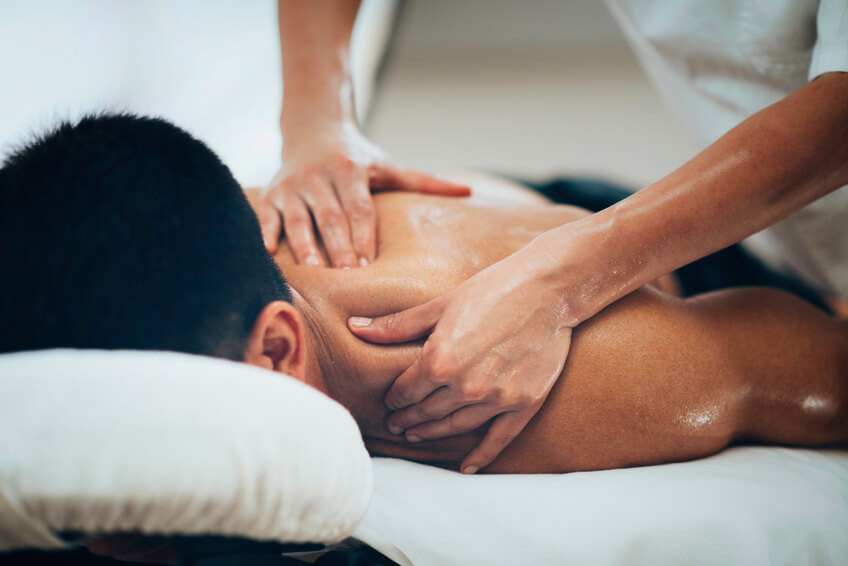In the United Kingdom, it is generally legal to provide massages at home as long as you adhere to certain regulations.
Thinking about giving massages at home in the UK, huh? It’s an interesting idea! But, you know, doing it at home has some rules. They want to ensure everyone stays safe, including you and the message recipient.
So, before you turn your place into a spa, it’s a good idea to check out the rules and make sure everything’s okay. Ready to find out more?
Legal Landscape for Home Massage Services

General regulations for massage therapists in the UK:
Professional Organizations: Massage therapists in the UK often affiliate with professional organizations such as the Complementary and Natural Healthcare Council (CNHC) or the Federation of Holistic Therapists (FHT).
Membership in these organizations may indicate adherence to certain standards and codes of conduct.
Training and Qualifications: Typically, massage therapists in the UK must undergo specific training and hold recognized qualifications. The level of required training may vary depending on the type of massage therapy offered.
Insurance: Many massage therapists are required to have professional liability insurance to practice legally. This insurance protects both the therapist and the clients in case of accidents or injuries during the massage.
Code of Ethics and Conduct: Adherence to a code of ethics and conduct is often expected from massage therapists. This may include maintaining client confidentiality, maintaining a professional environment, and obtaining informed consent.
Variations in regulations across different regions:
Local Authority Regulations: Some aspects of massage therapy regulation may be under the purview of local authorities. Local councils may have specific requirements or guidelines that therapists need to follow.
There might be different rules for massage therapy in Scotland, Wales, and Northern Ireland, even though there are general ones for the whole UK. The areas with their own rules are called devolved administrations.
Licensing requirements and qualifications:
CNHC Registration: The CNHC is a voluntary regulator for complementary healthcare practitioners in the UK. Registration with the CNHC is not mandatory, but it may enhance the credibility of a massage therapist.
Regulations can change, and compliance is essential for practitioners to ensure the legality and safety of their practice.
Conducting Massage at Home: Key Considerations
Implications for practicing without proper qualifications:
Legal Consequences: Practicing massage without the required qualifications may lead to legal consequences. Legal frameworks are in place to ensure public safety and unqualified practitioners may face fines, penalties, or legal action.
Safety and Ethics: Without proper qualifications, practitioners may lack essential knowledge of anatomy, physiology, and contraindications.
Professional Reputation: Operating without proper qualifications can damage the reputation of the massage therapist. Clients are likely to prefer practitioners with recognized qualifications, ensuring a higher standard of care.
Compliance with local council regulations:
Licensing Requirements: Many local councils have specific licensing requirements for massage therapists. Practitioners should check and comply with these regulations to operate legally.
Zoning and Land Use Regulations: Local councils may have zoning and land use regulations that impact the ability to conduct business, including home-based massage services.
Noise and Nuisance Regulations: Consideration should be given to noise levels and potential disturbances to neighbors. Local regulations may address these issues to maintain a peaceful residential environment.
Understanding potential legal consequences:
Fines and Penalties: Violating local regulations and practicing without proper qualifications may result in fines and penalties imposed by local authorities.
Cease and Desist Orders: Authorities may issue cease and desist orders to individuals operating without the necessary qualifications or approvals.
Loss of Income: Legal consequences may extend to the loss of income and clients if a practitioner is forced to cease operations due to legal issues.
Civil Liability: If a client sustains an injury or harm due to the negligence of an unqualified practitioner, the therapist may face civil liability and legal claims for damages.
Massage therapists considering home-based practices should thoroughly research and understand their locality’s legal and regulatory landscape.
The Role of Professional Associations
Benefits of joining relevant massage therapy associations:
Networking Opportunities: Membership in professional associations provides opportunities to connect with other massage therapists, share experiences, and build a professional network.
Continuing Education: Many associations offer access to workshops, seminars, and other educational resources. This helps members keep up with the newest trends in the industry, learn about techniques, and stay informed about legal requirements, all of which boost their professional growth.
Professional Recognition: Membership in reputable associations can enhance a massage therapist’s professional credibility. Clients may feel more confident in choosing a therapist who is affiliated with a recognized organization.
Advocacy and Representation: Associations often advocate for the interests of their members at the regional, national, or even international level. They may work towards improving working conditions, promoting fair compensation, and influencing relevant policies.
Insurance Benefits: Some professional associations offer group insurance plans for their members, including professional liability insurance. This coverage can be crucial in protecting therapists from legal and financial risks.
Access to resources and support for legal compliance:
Guidance on Regulations: Professional associations often guide local, regional, and national regulations affecting massage therapists. This helps members stay informed and compliant with legal requirements.
Legal Resources: Associations may offer legal resources, templates, and guidelines to assist members in understanding and navigating legal aspects of their practice. This can be particularly beneficial for those running home-based massage services.
Updates on Legislation: Associations monitor legislative changes that may impact the massage therapy profession. Members receive timely updates on any legal developments, ensuring they can adapt their practices accordingly.
Compliance Assistance: Some associations aid members facing legal challenges, providing support and resources to navigate issues related to licensing, zoning, and other regulatory matters.
Adherence to professional standards and ethical practices:
Code of Ethics: Professional associations typically establish a code of ethics that members are expected to follow. This code outlines principles and standards for professional conduct, ensuring high ethical standards in the practice of massage therapy.
Peer Accountability: Being part of a professional association means being part of a community that values ethical behavior. Members can hold each other accountable, fostering a culture of professionalism and integrity.
Disciplinary Processes: Associations often have disciplinary processes in place to address any breaches of ethical or professional conduct. This ensures that members adhere to established standards, promoting trust in the profession.
Education on Ethics: Associations may provide educational resources and training on ethical considerations, helping members navigate complex situations and make ethical decisions in their practice.
In summary, joining a relevant professional association in the field of massage therapy can offer numerous benefits, including networking opportunities, access to resources for legal compliance, and a framework for adhering to professional standards and ethical practices.
It is important for massage therapists to carefully evaluate and choose associations that align with their needs and values.
Client Consent and Communication
Importance of clear communication with clients:
Understanding Client Needs: Clear communication allows massage therapists to understand their client’s needs, preferences, and any specific concerns or medical conditions.
Building Trust: Open and transparent communication helps build trust between the therapist and the client. Clients are more likely to feel comfortable and secure when they know what to expect during a massage session.
Managing Expectations: Clearly communicating the scope of services, techniques used, and potential outcomes helps manage client expectations.
Addressing Concerns: Effective communication allows clients to express any concerns or discomfort they may have, allowing the therapist to address these issues promptly and appropriately.
Obtaining informed consent for home-based services:
Explanation of Services: Before providing massage services, therapists should clearly explain the nature of the services offered, including the type of massage, techniques used, and any potential benefits or risks.
Discussion of Health History: It is essential to discuss the client’s health history, including any pre-existing medical conditions, injuries, or allergies.
Clarification of Boundaries: Clearly communicate the boundaries of the massage session, including what areas of the body will be worked on and any specific draping or clothing requirements. This helps set clear expectations for both parties.
Consent Form: Use a written consent form that outlines the details discussed verbally. This form should cover the scope of services, potential risks, and the client’s agreement to proceed with the massage. Having a signed consent form provides legal protection for the therapist.
Documenting agreements and maintaining professionalism:
Privacy and Confidentiality: Emphasize the importance of client privacy and confidentiality. Ensure that any personal information shared by the client is kept confidential and secure, contributing to a professional and trust-based relationship.
Professional Appearance: Maintain a professional appearance and demeanor during home-based massage sessions. This includes dressing appropriately, using clean and professional equipment, and creating a tidy and inviting workspace.
Communication during the Session: Maintain open communication during the massage session. Check-in with the client regularly to ensure their comfort and adjust the session based on their feedback.
Challenges and Risks

Potential challenges in offering home-based services:
Privacy and Confidentiality: Keeping client privacy and confidentiality can be tough when working from home. Therapists must make sure the massage space is secure and others don’t overhear discussions with clients.
Safety Concerns: Safety is crucial for both the therapist and the client. Risks may include inadequate lighting, slippery surfaces, or potential tripping hazards. Therapists must assess and mitigate these risks to create a safe environment.
Client Comfort: Creating a comfortable and professional atmosphere in a home setting can be challenging. Ensuring proper equipment, temperature control, and ambiance is crucial to providing a positive client experience.
Mitigating risks through legal awareness and compliance:
Legal Compliance: Stay informed about local regulations governing massage therapy, home-based businesses, and health and safety standards. Compliance with these laws mitigates legal risks and ensures the legitimacy of the home-based practice.
Insurance Coverage: Obtain appropriate insurance coverage, including professional liability insurance.
Informed Consent: Obtain written informed consent from clients before providing services. Clearly communicate the scope of services, potential risks, and client responsibilities. This documentation helps protect therapists in case of legal disputes.
Record-Keeping: Maintain thorough client information records, session notes, and any agreements made. Organized documentation can be valuable in addressing legal issues or inquiries.
Learning from industry experiences and case studies:
Peer Networking: Connect with other massage therapists, especially those offering home-based services, to share experiences and insights. Learning from the experiences of peers can help anticipate and address potential challenges.
Case Studies: Study real-world case studies and examples within the massage therapy industry. Analyzing scenarios where legal or ethical issues arise can provide valuable lessons on risk mitigation and best practices.
Consultation with Legal Professionals: Seek advice from legal professionals familiar with the massage therapy industry. They can provide tailored guidance on compliance, risk mitigation, and legal best practices for home-based practitioners.
FAQs
Is it legal to offer massage services at home in the UK?
Yes, offering massage services at home in the UK is generally legal.
Do I need specific qualifications to provide home-based massage services?
Yes, having recognized qualifications in massage therapy is crucial to ensure legal and professional standards are met.
Are there any local council regulations I need to comply with for home-based massage?
Yes, local councils may have regulations regarding licensing, zoning, and health and safety. It’s essential to check and comply with these regulations.
Is it necessary to inform my local council before offering massage services at home?
Check with your local council, as some areas may require notification or approval before providing massage services at home.
Can I offer different types of massage at home, or are there restrictions?
You can offer various types of massage at home, but it’s important to be qualified in each type you provide and ensure client safety and well-being.
Is obtaining informed consent from clients necessary for home-based massage?
Yes, obtaining informed consent is essential. It involves explaining the nature of the massage and potential risks and obtaining the client’s agreement in writing.
Are there any specific draping or clothing requirements for home-based massage?
Clearly communicate draping and clothing requirements to clients to maintain professionalism and ensure their comfort.
What should I do if my home is in a residential area?
Check local zoning regulations to ensure that massage services at home comply with residential zoning laws.
Can I advertise my home-based massage services freely?
Yes, but ensure your advertising is truthful, professional, and complies with any advertising standards or regulations in place.
What should I do if a client complains about my home-based massage service?
Address client complaints promptly and professionally. Having a clear grievance procedure and resolving issues is important for client satisfaction and your professional reputation.
Conclusion
Remember to communicate clearly with your clients if you’re considering offering massage services at home. Make sure they understand the type of massage you provide, get their consent in writing, and keep records organized.
Be aware of potential challenges like privacy issues and safety concerns, and take steps to create a comfortable and safe space. Stay informed about local regulations, get the right insurance, and learn from others in the industry.











